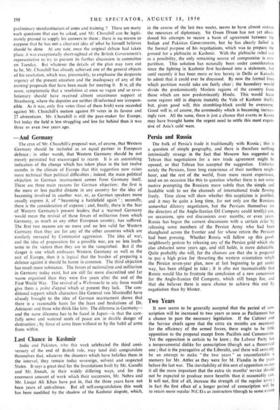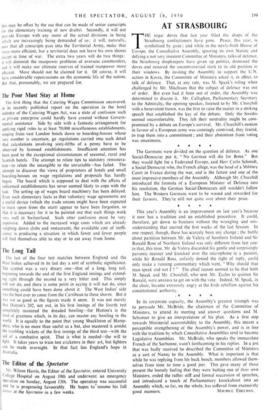Two Years
It now seems to be generally accepted that the period of con- scription will be increased to two years as soon as Parliament has a chance to pass the necessary legislation. If the Cabinet and the Service chiefs agree that the extra six months are necessary for the efficiency of the armed forces, there ought to be little opposition to the proposal except from Pacifists and Communists. Yet the opposition is certain to be keen ; the Labour Party has a temperamental dislike for conscription (though not a theoretical one ; that is the prerogative of the Liberals), and there will certainly be an attempt to make " the two years " as uncomfortable a memory for Mr. Attlee as they were for M. Flandin in the years before the last war. The inevitability of this sort of opposition makes it all the more important that the extra six months' service should not be expected to produce more benefits than it reasonably can. It will not, first of all, increase the strength of the regular army ; in fact the first effect of a longer period of conscription will be to retain more regular N.C.O.s as instructors (though to some extent this may be offset by the use that can be made of senior conscripts for the elementary training of new drafts). Secondly, it will not provide Europe with any more of the actual divisions in being which are increasingly being demanded of us: it will, naturally, now that all conscripts pass into the Territorial Army, make that force more efficient, but a territorial does not leave his own shores except in time of war. The extra two years will do two things: it will diminish the manpower problems of overseas commanders, and it will make our ultimate reserves of trained manpower more efficient. More should not be claimed for it. Of course, it will have considerable repercussions on the economic life of the nation. But that, presumably, we are prepared for.



































 Previous page
Previous page